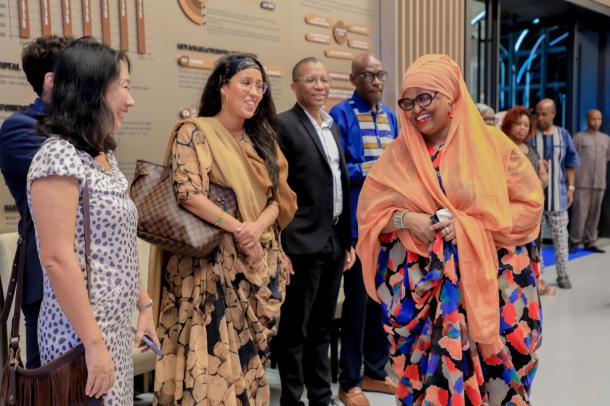Djibouti secures seat on UNESCO cultural diversity committee, elevating African artistic voice on G global stage

Djibouti has taken a significant step forward in its cultural diplomacy by being elected to the Intergovernmental Committee of UNESCO’s 2005 Convention on the Protection and Promotion of the Diversity of Cultural Expressions.
The announcement marks a landmark moment in the country’s long-standing commitment to championing cultural identity and artistic innovation.
This election comes nearly two decades after Djibouti ratified the Convention in August 2006, making it one of the earliest adopters of the landmark treaty.
The 2005 Convention serves as a cornerstone for promoting cultural diversity worldwide, recognizing the power of culture as a driver of sustainable development and international dialogue.
The victory is widely viewed as a recognition of Djibouti’s tireless efforts to strengthen its cultural sector and elevate the role of artists within its society.
By securing a position on the Intergovernmental Committee, Djibouti now has a direct hand in shaping global cultural policy, managing the International Fund for Cultural Diversity, and overseeing the implementation of the Convention at the international level.
This achievement follows a vigorous diplomatic campaign led by His Excellency Ayeid Mousseid Yahya, Djibouti’s Ambassador and Permanent Delegate to UNESCO.
Backed by national authorities and bolstered by the vision of President Ismaïl Omar Guelleh, the country’s candidacy was promoted with clarity and determination.
“This election responds to a clear objective: to make the voices of Djiboutian artists, artisans, and all cultural actors heard on the international stage,” said Ambassador Yahya.
“It is also about consolidating the foundations of an ambitious national cultural policy, in line with the international standards promoted by UNESCO.”
As a member of the Committee, Djibouti is poised to advocate for the integration of its cultural products into global markets while supporting homegrown artists.
The move also paves the way for further reforms, including greater investment in training, residencies, and public policy frameworks aimed at empowering the local creative economy.
Beyond national significance, Djibouti’s appointment contributes to broader continental goals.
With African voices underrepresented in global cultural governance, Djibouti’s presence promises to foster a more balanced, inclusive, and diverse cultural exchange.
Far from a symbolic accolade, this milestone underscores Djibouti’s rising profile as a cultural diplomat.
It signals a deepening resolve to defend cultural rights, promote artistic freedom, and make diversity a cornerstone of international cooperation.
About The Author
dailymailafric
I am an avid African news observer, and an active member of Daily Mail Africa.
I’m Passionate about staying informed on diverse topics across the continent,
I actively contribute to publishing on political, economic and cultural developments in Africa.



